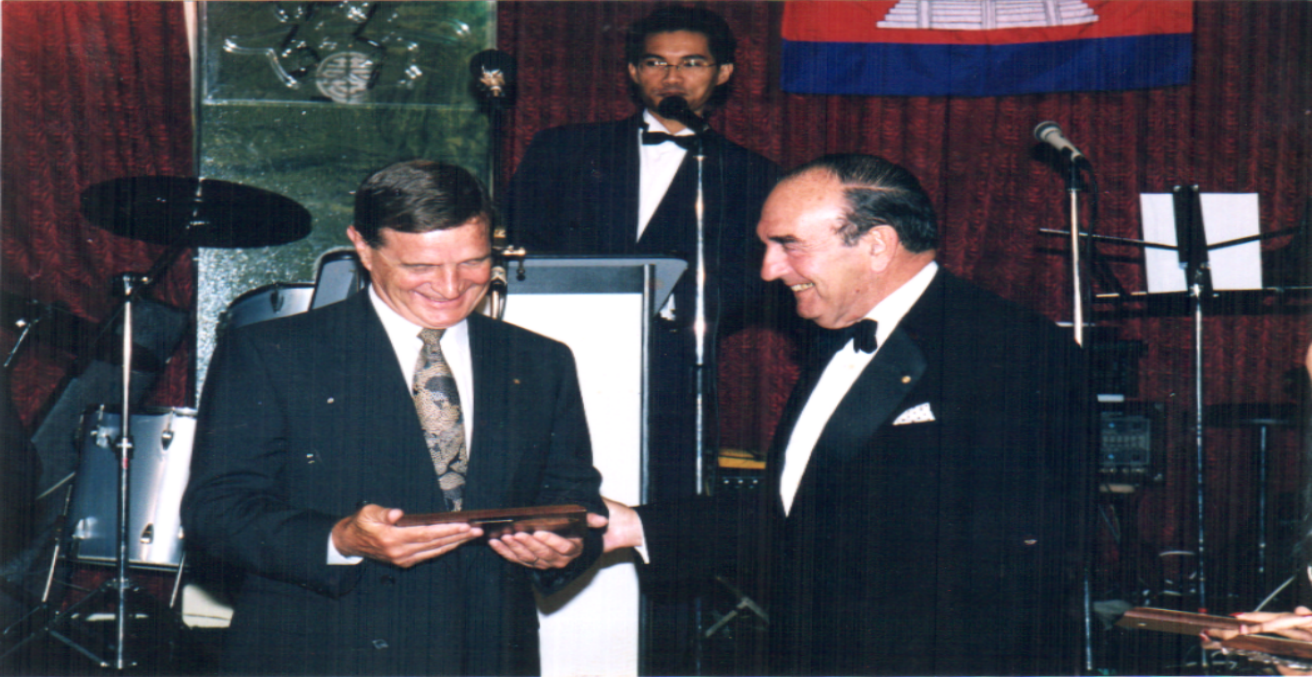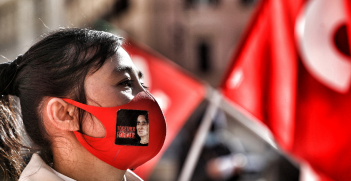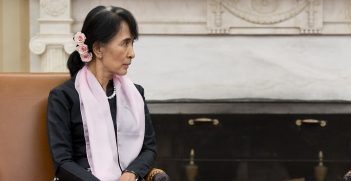Cambodia: a Solution to the Hun Sen Conundrum

The international community must hold Hun Sen accountable under the provisions of the 1991 Paris Peace Accords.
After almost three decades of bowing to international scrutiny in exchange for legitimacy and aid assistance, Cambodia’s Prime Minister Hun Sen has changed his approach. As China’s cash splash to “help” build Cambodia continues to grow exponentially, so has Hun Sen’s fearlessness. No longer is Hun Sen under international pressure to adhere to basic rules of law, standards or conventions. Coupled with the wealth accumulated for the last three decades, this has been the catalyst for rising dictatorship.
For example, on 23 August, Hun Sen announced the release of a handful of prisoners. This gesture came amidst international criticism of his annihilation of democracy in Cambodia. But none of the released people should have been imprisoned in the first place. Their only crime was anti-authoritarianism. Some are human rights defenders. Others are political opponents, journalists and environmentalists. Joining the so-called “prisoners” too are community representatives who fought to protect their villages from tycoons using state security forces to take possession of their land under the pretext of economic development. This crime of burning village and land grabbing have been well documented by the United Nations. In 2003, the UN High Commissioner for Human Rights passed resolution 2003/79:
Urges the Government of Cambodia to strengthen its efforts to tackle the problems related to land … and notes with concern the remaining problems of land grabbing, forced evictions and further displacement.
Hun Sen’s dictatorial style has been largely attributed to the international community taking the path of soft diplomacy over peace and economic development. Those resolutions were not carried by Hun Sen or the UN Human Rights Commission. Persistent breaches were not sanctioned. Instead the UN Human Rights Commission was entertained with cosmetic compliance of human rights. Holding various seminars as a showcase for the last 25 years with no structural change including independent judiciary that the UN had been urging for drastic changes, never materialised.
Nonetheless the United Nations continues to afford legitimacy to Mr Hun Sen and his regime at the expense of basic compliance of human rights.
For those reasons, Mr Hun Sen does not see the need to adhere to the principles of democracy and the Universal Declaration of Human Rights enshrined in the Accords. Fearing for the region’s stability that could affect Sustainability Development Goals, the former Minister of Foreign Affairs of Indonesia Dr Marty Natalegawa recently spoke on the ABC Network, urging ASEAN members to speak up about the creeping authoritarianism in Cambodia and the Philippines and the challenge China poses in the South China Sea.
The question is, why did the international community, particularly the UN Human Rights Council allow Hun Sen’s authoritarianism to continue to this point? Cambodia’s modern state was created following the Paris Peace Accords. As was famously declared by the UN’s Special Representative Professor Surya Subedi in 2011: “The Agreements will remain relevant until their vision is a reality for all Cambodians.”
With the United Nations taking drastic actions against Myanmar’s army for crimes committed within a year, whereas the crimes committed in Cambodia stretched well over a decade, there is a call for the UN Human Rights Council to cease adopting soft diplomacy language. Of great concern is the ongoing human rights abuses involving land grabbing. Failing that the UN’s high office must revise its presence in Cambodia given that the building capacity delivered to Cambodia had only strengthen the rise of authoritarianism at the expense of human rights.
In recent weeks the author of this article has been campaigning for Australia to take leadership to have the signatories of the Accords reconvened. No doubt, after more than a quarter century many parties including China and Russia will resist the resuscitation of the Accords. But if these documents are to be treated as international treaties and if their fundamental principles of democracy and human rights have been persistently violated for over the last two decades, there are both moral and legal obligations to have the agenda before the Secretary-General, as provided under Article 29. Further Part III, Article 15(2) contains both a fundamental protection of respect for human rights and a core prohibition that “past policies and practices are not allowed to return.”
The call for Australia to hold Hun Sen accountable under the Accords has gained momentum with both State and Federal parliamentarians supporting the campaign.
On 10 August 2018 the Member for Auburn, Luke Foley MP, held a press conference and called on the Federal Government not to recognise the recent Cambodian national election. He also urged the Federal Government to deal with the rise of Hun Sen’s supporters on Australian soil, particularly in Sydney. The move was unprecedented and historic from a state member of parliament.
In the Commonwealth Parliament, Julian Hill MP, Hon. Senator Lisa Singh and Senator Richard Di Natale renewed the campaign for Australia to show leadership, following an early statement by the former UN’s Special Representative on Human Rights to Cambodia, the Hon. Michael Kirby AC CMG FAIIA. Mr Kirby described the situation, “so extreme”.
Despite the change of cabinet in recent weeks, Australia’s newly sworn Foreign Minister Payne, is urged to take immediate actions similar to the US Government with visa ban, freeze of assets and sanctions individuals involved in human rights violations. At the same time, to achieve a longer goal for a sustainable democratic Cambodia as enshrined in the Accords, the UN’s high office is urged to recommend a UN-appointed team to investigate criminal conduct similar to that of Myanmar’s army. Failing this, the UN and the international community are urged not to afford legitimacy to the current regime.
Sawathey Ek OAM is a lawyer, the Principal of E K Lawyers (Sydney) and Founder & Spokesperson for the Cambodian Action Group. Sawathey is a former refugee from Cambodia and is leading the campaign for Australia and the international community to hold the current leadership in Cambodia accountable under the 1991 Paris Peace Accords.
This article is published under a Creative Commons Licence and may be republished with attribution.





